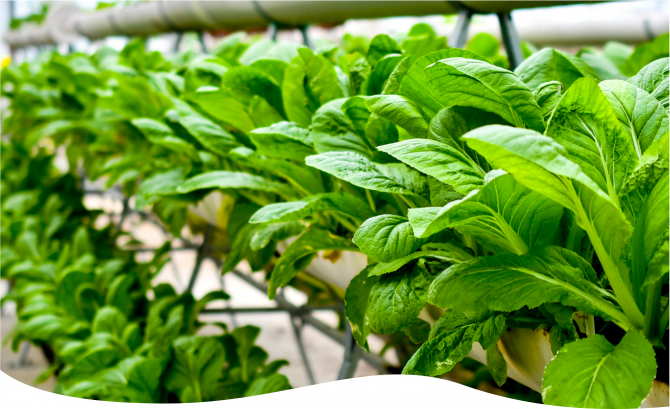Our Solutions
We work with organisations to develop cutting-edge solutions to help solve the UK’s food system problem.
Soil Solutions
Improving the structure, organic matter and nutrient content of soils is becoming a priority for both farmers and government. It is central to remaining productive and able to claim farm payments.
Soil Testing
Soil Testing
Soil testing can help to maximize yields, quality, and hence profits by tracking soil health and minimizing environmental harm. Testing will support decisions on the need for irrigation programs, fertilization choices and pesticide use.
Soil Structure
Soil Structure
The arrangement of soil particles and aggregates influences water and nutrient flow, aeration to plants and microbes, and resistance to soil erosion and compaction. Performing adequate soil testing in conjunction with nutrient management programs, tilling alternatives, and run-off control will aid in preserving sustainable structure.
Tilling Alternatives
Tilling Alternatives
Tillage has long been used to incorporate residue, prepare seedbed, control weeds, and loosen soil. It also reduces organic matter, disrupts structure and leaves soil prone to erosion. No till or low till methods are finding more utilization.
Soil Carbon
Soil Carbon
Soil carbon, including both soil organic matter and inorganic carbon as carbonate minerals, reduces greenhouse gases in the air and improves soil quality, raising fertility, reducing erosion, and encouraging biota. Soil carbon can be optimized by crop choices, grazing management and soil nutrient management.
Cover Crops
Cover Crop
Cover crops prevent damage from leaving soil bare, such as soil erosion, weed growth and poor surface water retention. Depending on selection, they can increase soil nutrients and provide diversity in livestock fodder.
Cultivation Programming
Cultivation Programming
Cultivation programming will need to evolve with new policy and the effects of climate change. Irrigation programs, fertilization programs and the source of the fertilizer are examples of cultivation techniques likely to require modifications.
We're adapting the UK's food agriculture industry to meet net zero targets, and help mitigate the pressures of climate change.
Our Solutions
But It Doesn’t
Stop There…
Climate Spheres UK also assists customers with targeted funding sources to provide financing through grants and other financial resources. We help implement modifications to their processes with speed, efficiency and affordability.
We provide public speaking or workshops for conferences, events and universities, and provide training in a variety of areas related to sustainable agriculture, data interpretation, SME business planning and agro-climatic factors.
Let's restore the biodiversity of our farms and their supply chains.
We are here to guide the sustainable transition that your farm business needs to survive in the changing climate. Together, we can profitably adapt to climate change and UK food abundance and security.
Our Solutions
We work with organisations to develop cutting-edge solutions to help solve the UK’s food system problem.
Soil Solutions
Improving the structure, organic matter and nutrient content of soils is becoming a priority for both farmers and government. It is central to remaining productive and able to claim farm payments.
Soil Testing
Soil Testing
Soil testing can help to maximize yields, quality, and hence profits by tracking soil health and minimizing environmental harm. Testing will support decisions on the need for irrigation programs, fertilization choices and pesticide use.
Soil Structure
Soil Structure
The arrangement of soil particles and aggregates influences water and nutrient flow, aeration to plants and microbes, and resistance to soil erosion and compaction. Performing adequate soil testing in conjunction with nutrient management programs, tilling alternatives, and run-off control will aid in preserving sustainable structure.
Tilling Alternatives
Tilling Alternatives
Tillage has long been used to incorporate residue, prepare seedbed, control weeds, and loosen soil. It also reduces organic matter, disrupts structure and leaves soil prone to erosion. No till or low till methods are finding more utilization.
Soil Carbon
Soil Carbon
Soil carbon, including both soil organic matter and inorganic carbon as carbonate minerals, reduces greenhouse gases in the air and improves soil quality, raising fertility, reducing erosion, and encouraging biota. Soil carbon can be optimized by crop choices, grazing management and soil nutrient management.
Cover Crops
Cover Crop
Cover crops prevent damage from leaving soil bare, such as soil erosion, weed growth and poor surface water retention. Depending on selection, they can increase soil nutrients and provide diversity in livestock fodder.
Cultivation Programming
Cultivation Programming
Cultivation programming will need to evolve with new policy and the effects of climate change. Irrigation programs, fertilization programs and the source of the fertilizer are examples of cultivation techniques likely to require modifications.
We're adapting the UK's food agriculture industry to meet net zero targets, and help mitigate the pressures of climate change.
Our Solutions
But It Doesn't
Stop There...
Climate Spheres UK also assists customers with targeted funding sources to provide financing through grants and other financial resources. We help implement modifications to their processes with speed, efficiency and affordability.
We provide public speaking or workshops for conferences, events and universities, and provide training in a variety of areas related to sustainable agriculture, data interpretation, SME business planning and agro-climatic factors.














